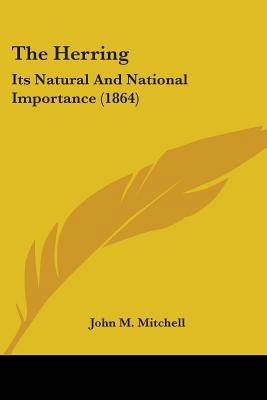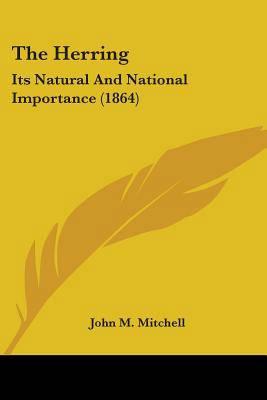
- Retrait gratuit dans votre magasin Club
- 7.000.000 titres dans notre catalogue
- Payer en toute sécurité
- Toujours un magasin près de chez vous
- Retrait gratuit dans votre magasin Club
- 7.000.0000 titres dans notre catalogue
- Payer en toute sécurité
- Toujours un magasin près de chez vous
48,95 €
+ 97 points
Format
Description
The Herring: Its Natural And National Importance is a non-fiction book written by John M. Mitchell in 1864. The book explores the significance of herring as a natural resource and its importance to the national economy of Britain. The author provides a detailed account of the biology and ecology of the herring fish, including its life cycle, breeding habits, and migration patterns. He also discusses the history of herring fishing and the impact of the industry on coastal communities. The book is divided into several chapters, each focusing on different aspects of the herring fish. The first chapter provides an overview of the natural history of the herring, including its physical characteristics, distribution, and feeding habits. The second chapter delves into the economic importance of herring, including its role in the fishing industry and its contribution to the national economy. The following chapters explore the various methods used to catch herring, such as drift-netting and seine-netting, as well as the different types of boats used in the industry. The author also discusses the processing and preservation of herring, including salting, smoking, and pickling. The book concludes with a discussion of the cultural significance of herring, including its role in traditional cuisine and folklore. The author argues that herring is not only an important economic resource but also a symbol of national identity and pride. Overall, The Herring: Its Natural And National Importance provides a comprehensive overview of the herring fish and its importance to the British economy and culture in the 19th century.This scarce antiquarian book is a facsimile reprint of the old original and may contain some imperfections such as library marks and notations. Because we believe this work is culturally important, we have made it available as part of our commitment for protecting, preserving, and promoting the world's literature in affordable, high quality, modern editions, that are true to their original work.
Spécifications
Parties prenantes
- Auteur(s) :
- Editeur:
Contenu
- Nombre de pages :
- 396
- Langue:
- Anglais
Caractéristiques
- EAN:
- 9781104309084
- Date de parution :
- 13-04-09
- Format:
- Livre broché
- Format numérique:
- Trade paperback (VS)
- Dimensions :
- 152 mm x 229 mm
- Poids :
- 526 g

Les avis
Nous publions uniquement les avis qui respectent les conditions requises. Consultez nos conditions pour les avis.






